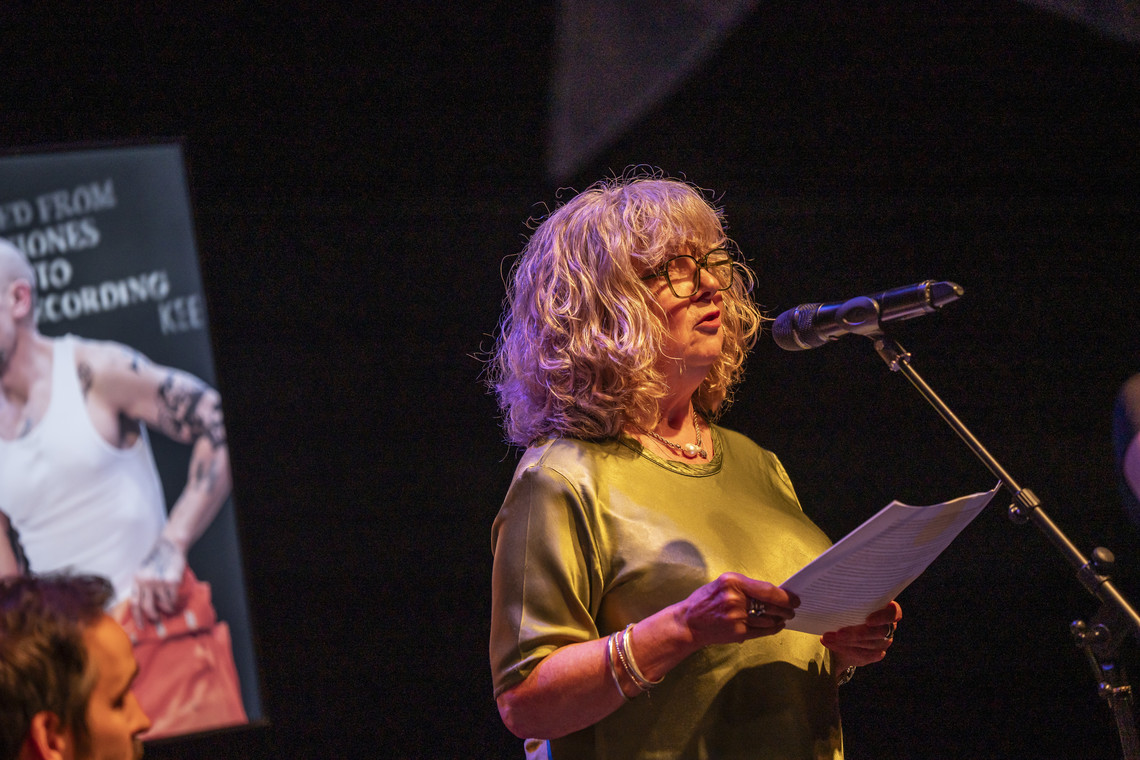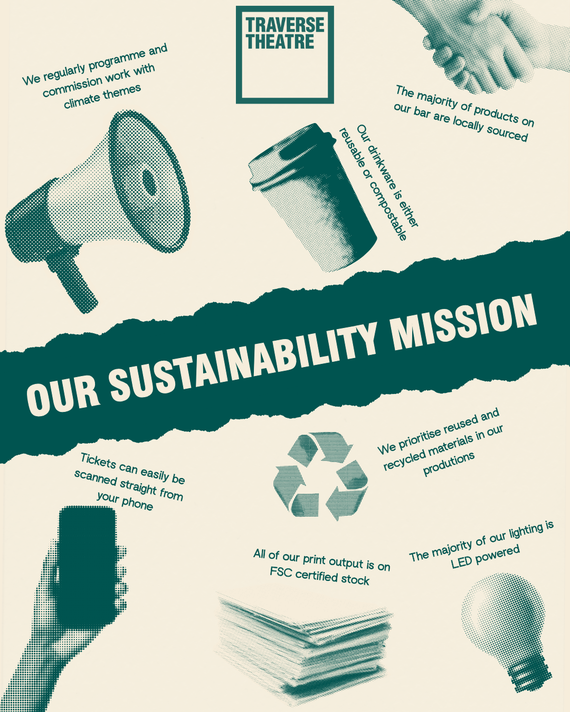
As COP30 gets underway this week, climate ambition is once again under global scrutiny.
This year’s summit includes dedicated discussions on the role of culture within climate action, alongside a wider focus on equity and responsibility through the Global Stocktake. With culture being recognised as part of the climate response, this is a timely moment to reflect on how the arts contribute not only to understanding the climate crisis, but also to shaping practical, community-rooted solutions.
Theatre has long been a space where we gather to reflect, imagine and consider what is possible. But theatres are also buildings, organisations and supply chains. The path to sustainability is creative, but it is also operational. It is shaped by everyday decisions that accumulate over time.
At the Traverse Theatre, this work has been patient and continuous. Our recent Culture for Climate Scotland environmental report recognised the tangible impact of this approach. It highlighted that our electricity consumption has “decreased greatly” this year. The report specifically noted that our transition to LED and energy efficient lighting throughout the building is clearly delivering results. It is encouraging to see steady, practical change producing meaningful outcomes.

This sits alongside a wider commitment across the organisation. Our team has undertaken Theatre Green Book training, aligning how we create work with shared sustainability standards across the sector. We have also established a sustainability group to monitor progress, share learning and ensure we remain accountable to our ambitions. We have strengthened relationships with local suppliers so our procurement supports lower carbon supply chains while investing in our local economy. We have redesigned our ticketing experience to be more sustainable. More than 90 percent of our audiences now arrive with digital tickets, allowing us to minimise printing and reduce energy and materials.
This work is equally reflected in our artistic programme. We continue to platform work that engages with the climate crisis in ways that recognise not only urgency, but also care, agency and possibility. Change must be understood emotionally as well as technically. Culture helps us hold that complexity.
The focus on culture within COP30 is a reminder of something the arts sector understands deeply. Climate action is not achieved by single bodies acting alone. Progress depends on shared responsibility, shared creativity and shared commitment. Our sector is strongest when we collaborate across organisations, artforms and communities. Theatrical practice has always been collective, and sustainability requires the same approach.
Theatre helps us imagine different futures. The work now is to make those futures possible through consistent action, open conversation and collaboration grounded in reality rather than rhetoric.
Linda Crooks, CEO of Traverse Theatre